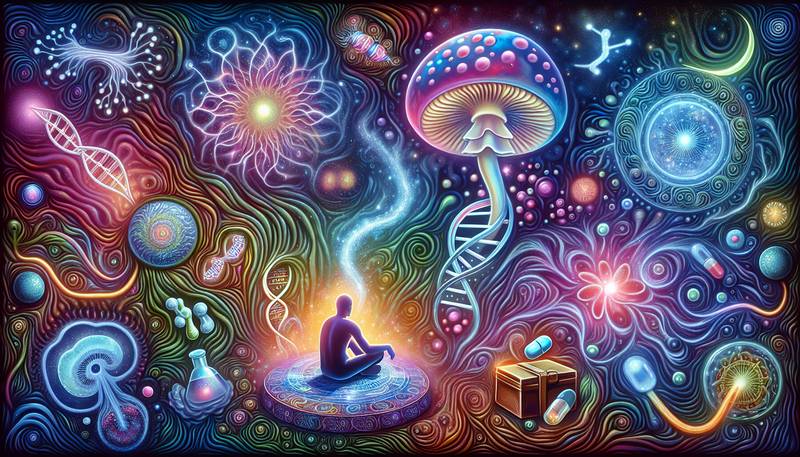Psychedelic Therapy: A New Frontier in Wellness

Breaking the MoldImagine a world where anxiety melts away like ice cream on a summer day. That's not just a sweet thought; it’s what psychedelic therapy is aiming to do. This innovative approach combines the ancient wisdom of psychedelics with modern science, creating a cocktail so intriguing that even your most adventurous friend would hesitate to try it. From PTSD to depression, researchers are exploring how psychedelics can unlock doors in the mind—doorways that have often been locked tighter than a stubborn jar of pickles.The Science Behind the MagicIt turns out, these psychedelic substances might just play the role of a well-timed plot twist in the story of mental health. With compounds like psilocybin (found in magic mushrooms) and MDMA (the party starter of the 90s), scientists are diving into how these substances interact with the brain. They might just do more than make you see elves dancing on rainbows; they could potentially rewrite the neural pathways responsible for mood regulation. Some studies have shown that these substances can promote neurogenesis, which is a fancy way of saying they can help grow new neurons. Who knew the brain had a green thumb?Therapeutic ApplicationsThe practical applications of psychedelic therapy are as diverse as a college student’s diet. - PTSD: Research indicates that MDMA can assist in reprocessing traumatic memories, allowing individuals to confront their past without the emotional weight they carry.
- Depression: Psilocybin has shown promise in alleviating symptoms of severe anxiety and depression, often with only a few doses required. Talk about a shortcut!
- Substance Abuse: Some studies point toward psychedelics helping break the cycle of addiction, teaching users to reframe their relationship with substances.
- Anxiety: Terminal patients have reported relief from existential anxiety when treated with psilocybin, leading to a more peaceful acceptance of their situation.
As each of these fields continues to be explored, the potential benefits shine like a disco ball at a retro party.Why the Stigma?Despite the promising research, there’s still a sizable portion of the population that sees psychedelics as more suited for festival-goers than for therapy seekers. This stigma is rooted in decades of misunderstanding and fear. Think of it like being told pizza is bad for you when all it really needs is some healthy toppings! The reality is that psychedelics, when used responsibly and in controlled settings, can yield transformative experiences. Legal hurdles and societal attitudes are slowly changing, but it might take a few more years before the word “psychedelic” conjures thoughts of inner healing rather than wild raves.The Therapeutic ExperienceNow you may be wondering what a psychedelic therapy session looks like. Forget the old stereotypes of neon lights and dance floors. These sessions are more akin to a cozy living room party, minus the nachos. Patients are often guided by a trained facilitator in a safe environment, often equipped with calming music and eye masks. The intent is to foster a sense of security while the individual embarks on a journey of self-discovery. It’s a bit like going on a road trip through your own mind—but without the annoying backseat driver (unless you count your thoughts).Ethical ConsiderationsAs with any burgeoning field, ethical considerations must be taken seriously. The allure of psychedelics can sometimes overshadow the need for proper guidance and support. It's crucial to ensure that participants are well-informed, receive adequate psychological support, and are protected from potential misuse.Given the potential for abuse, responsible use is essential. After all, nobody wants to be that person who takes a little too much and ends up trying to befriend a lamp.Mind Over MatterAs the research around psychedelic therapy unfolds, it’s becoming clearer that these substances may have a place in modern medicine. It’s a refreshing thought that what was once relegated to the shadows could provide legitimate relief for countless individuals. So, while the stigma might cling to these substances like a stubborn sock on a washing line, the potential benefits could very well reshape our understanding of mental health. Here’s to hoping that one day soon, psychedelic therapy will be embraced not just by science but by society—with open arms and perhaps a slightly raised eyebrow.
|
|







